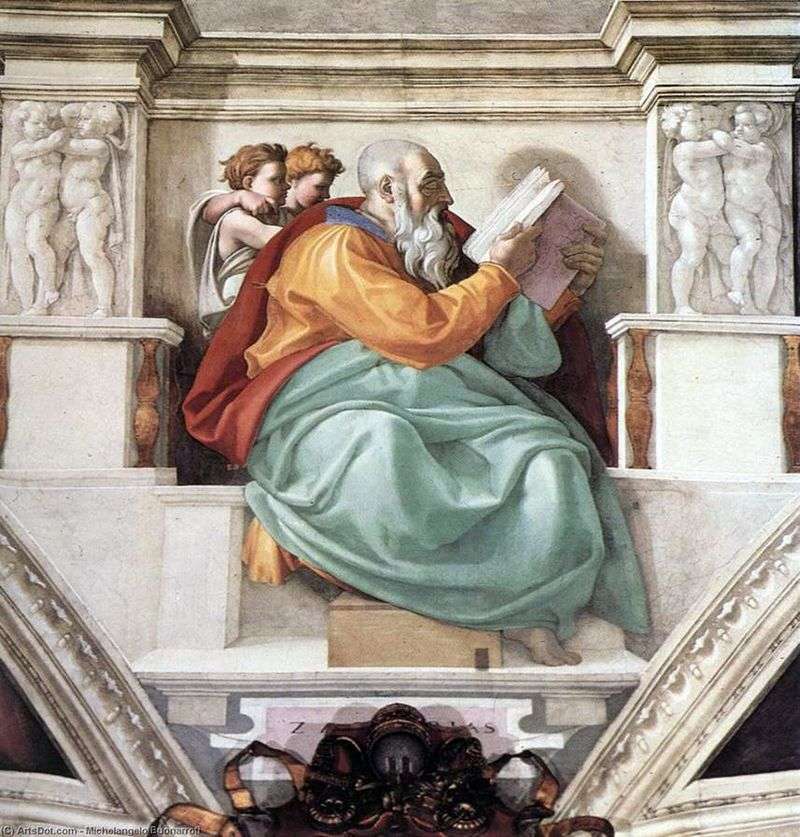
Fresco by Michelangelo Buonarroti depicting the Prophet Zechariah. The painting of the ceiling of the Sistine Chapel of the Cathedral of St. Peter. Zechariah, Hebrew priest, prophet, father of John the Baptist. The holy prophet Zechariah and the holy righteous Elizabeth were the parents of the holy Prophet, Forerunner and Baptist of the Lord John. They came from the Aaron family: Saint Zechariah, son of Barachia, was a priest in the Jerusalem temple, and Saint Elizabeth was the sister of Saint Anne, the mother of the Most Holy Mother of God.
The time and place of the birth of the prophet Zechariah, in the absence of precise instructions in the books of the holy Scriptures, have to be content with only more or less plausible assumptions. Researchers agree that the prophet Zechariah was born in Babylon shortly before the issuance of Cyrus’s decree and arrived in Jerusalem at a young age. Like Jeremiah and Ezekiel, the prophet Zechariah belonged to the priestly family. St. Cyril of Alexandria directly calls Zechariah “descended from priestly blood, that is, from the tribe of Levi.”
The books of the Holy Scriptures do not contain accurate and detailed information about the circumstances of the life and work of the prophet Zechariah. From the book of his name, as well as from the books of Ezra and Nehemiah, it is possible to determine with sufficient clarity only the personality of the prophet and the time of his life and work. The first recorded prophecy of Zechariah dates back to the second year of Darius Hisstasp. The beginning of the prophetic activity of Zechariah according to the Scripture is determined quite accurately; there is absolutely no indication in Scripture about the end of it, nor about the time of the death of the prophet and the place of his burial. The purpose and meaning of writing the book of Zechariah is the intention of the Old Testament prophet to encourage the builders of the temple and the entire Jewish people in the difficult time for the community to be restored after captivity; along with that
To achieve these goals, the prophet Zechariah depicts the future Kingdom of the Messiah and, in general, the glorious fate of the people of God, as having come to fruition after a long struggle with paganism, after repeated falls of the chosen people themselves; the actions of the Providence, leading the chosen people to their intended purpose, will be expressed in miraculous assistance to the sons of Israel in the fight against paganism, on the one hand, and in severe punishments for the sins of themselves, on the other; moreover, the pagans serve as an instrument in the hands of God for the punishment of the sons of God’s people, as in times past. The last of the prophecies of Zechariah, having a definite indication of time, refers to the ninth month of the fourth year of Darius.
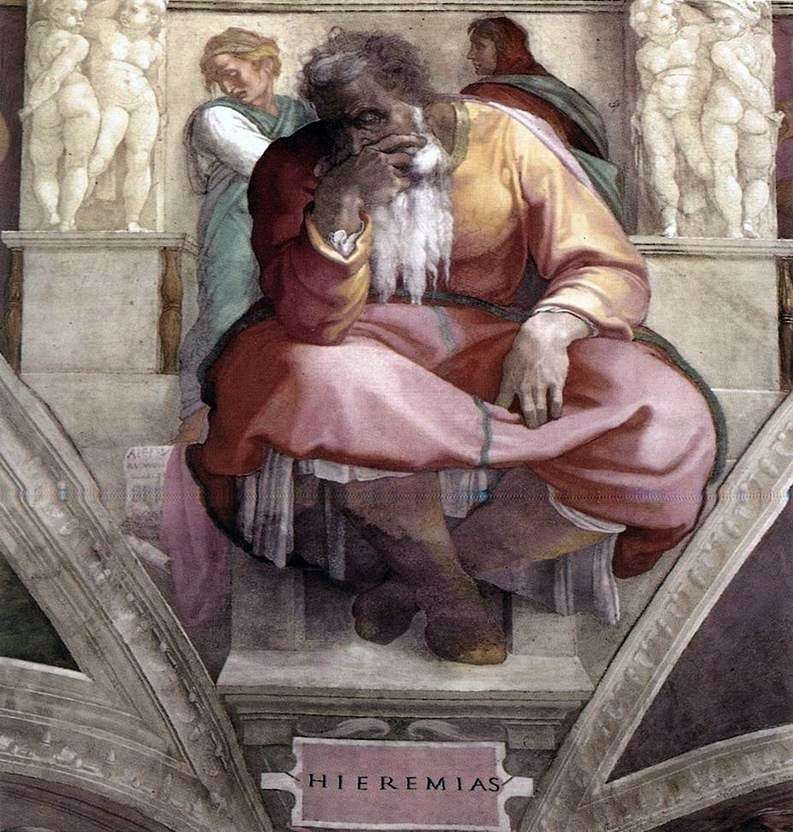 The Prophet Jeremiah (Fresco) by Michelangelo Buonarroti
The Prophet Jeremiah (Fresco) by Michelangelo Buonarroti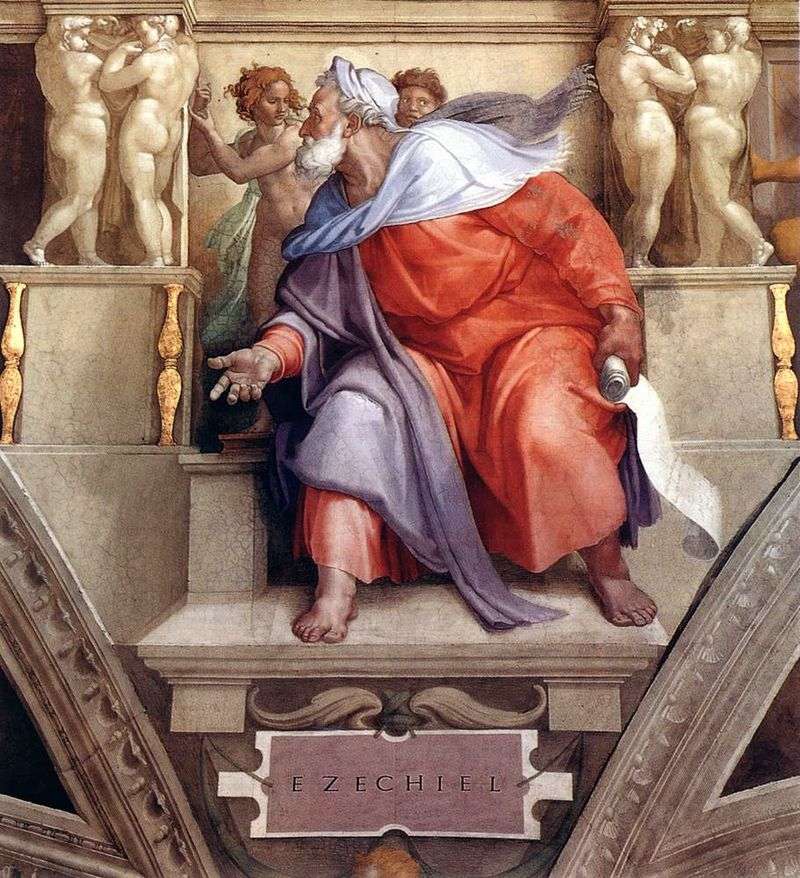 The Prophet Ezekiel (Fresco) by Michelangelo Buonarroti
The Prophet Ezekiel (Fresco) by Michelangelo Buonarroti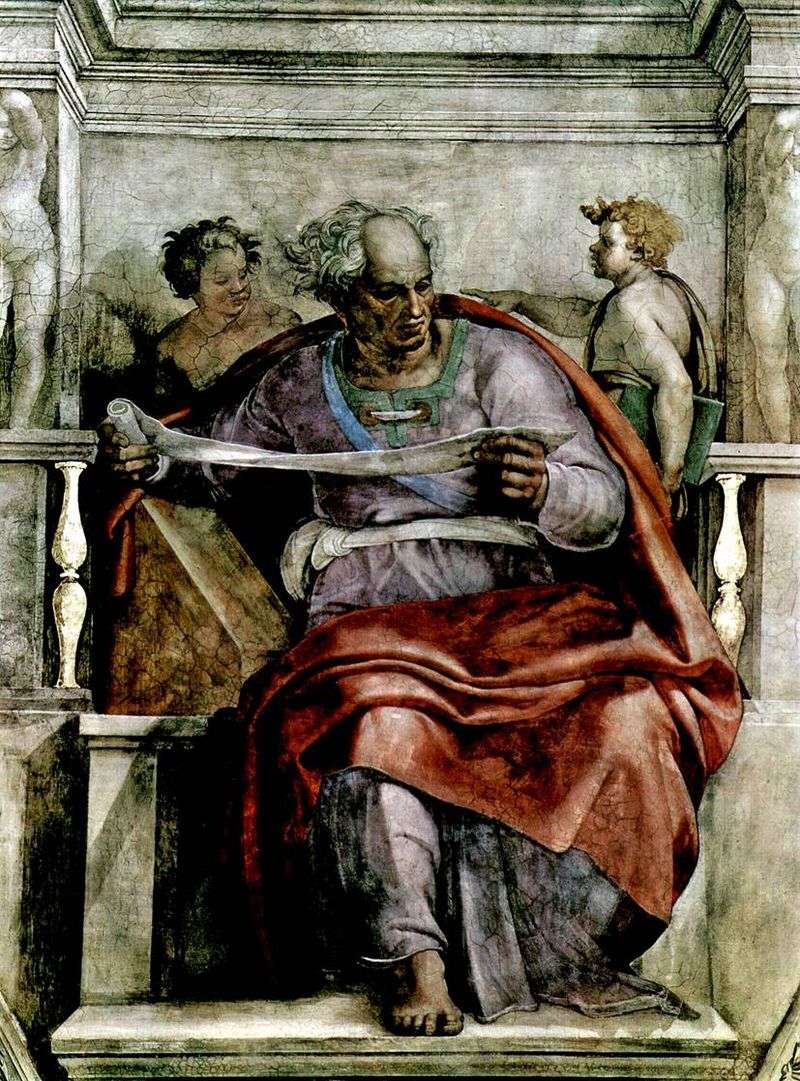 The Prophet Joel (Fresco) by Michelangelo Buonarroti
The Prophet Joel (Fresco) by Michelangelo Buonarroti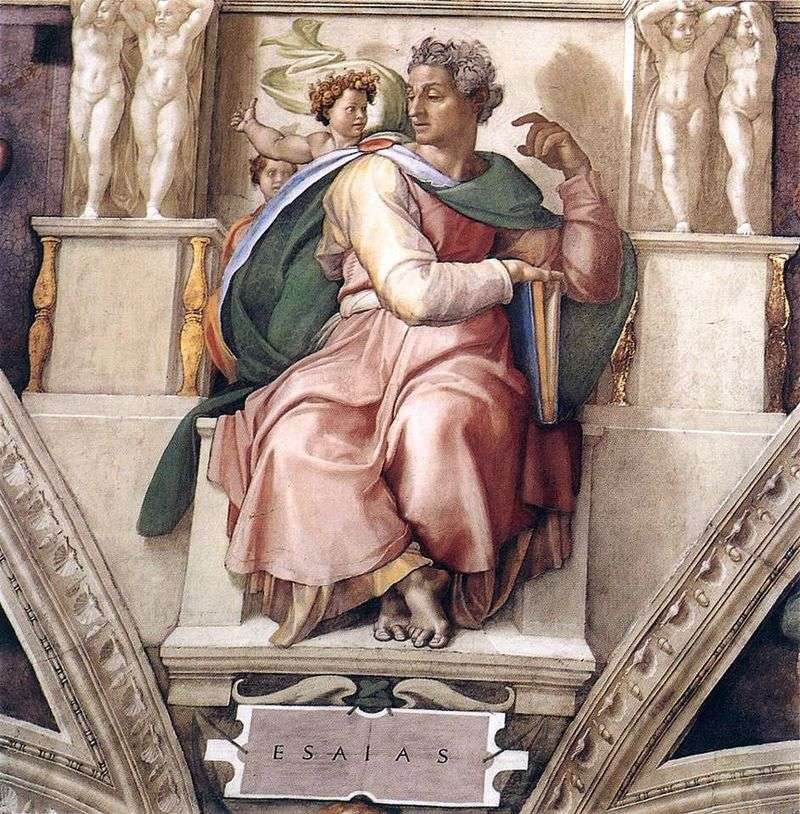 The Prophet Isaiah (Fresco) by Michelangelo Buonarroti
The Prophet Isaiah (Fresco) by Michelangelo Buonarroti Madonna on the throne, Zechariah, John the Baptist and Mary Magdalene by Francesco Parmigianino
Madonna on the throne, Zechariah, John the Baptist and Mary Magdalene by Francesco Parmigianino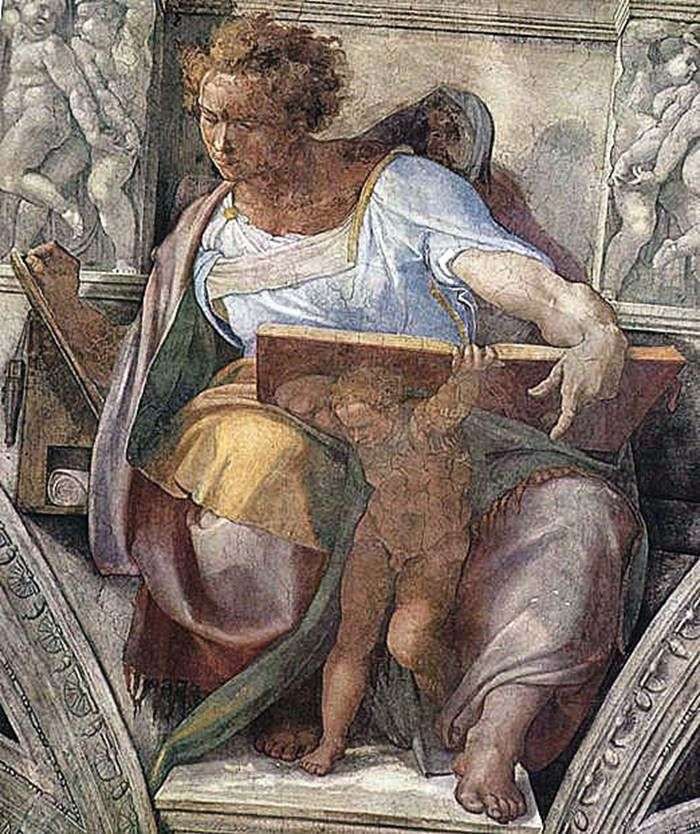 Prophet Daniel (Fresco) by Michelangelo Buonarroti Buonarroti
Prophet Daniel (Fresco) by Michelangelo Buonarroti Buonarroti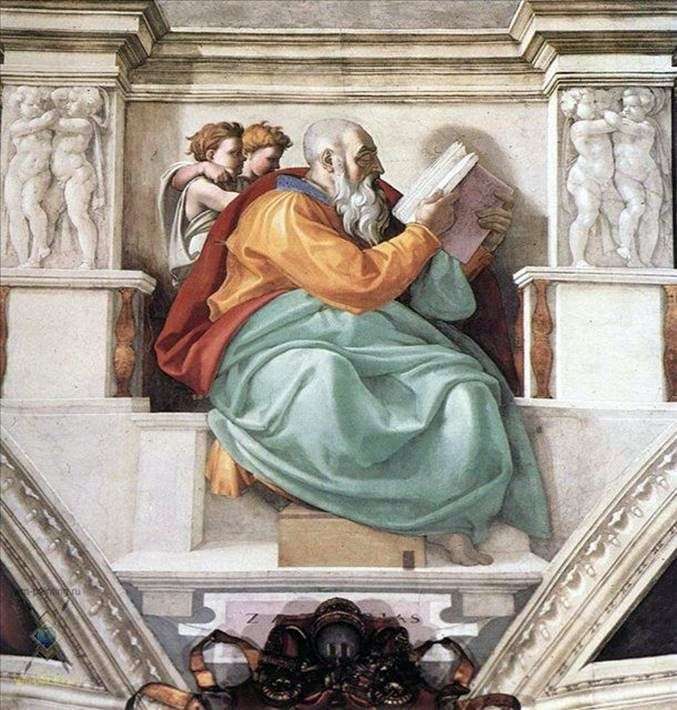 Zechariah by Michelangelo Buanarrotti
Zechariah by Michelangelo Buanarrotti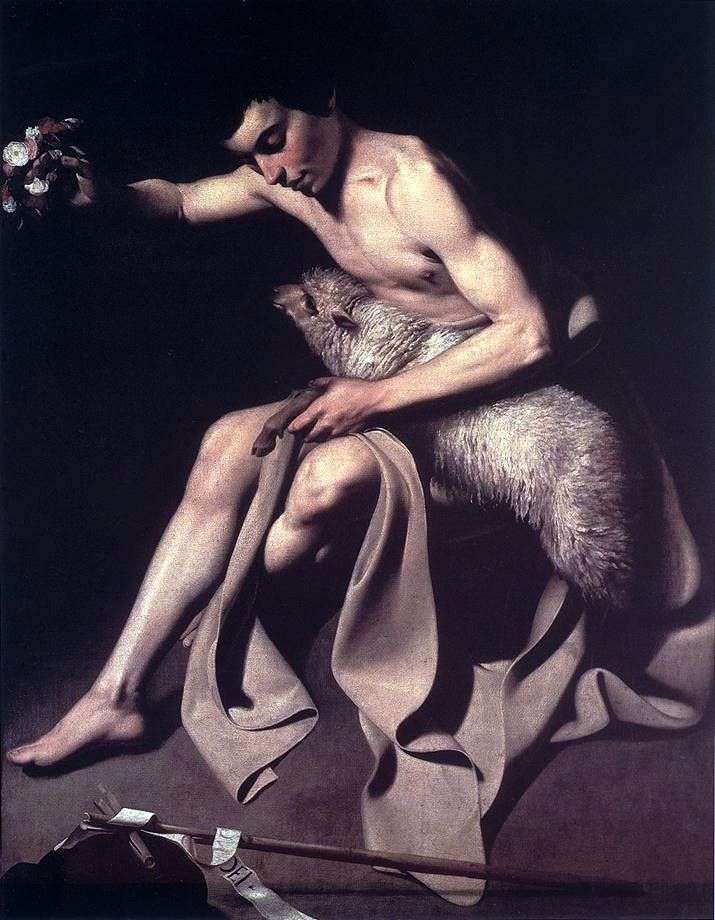 John the Baptist by Michelangelo Merisi da Caravaggio
John the Baptist by Michelangelo Merisi da Caravaggio